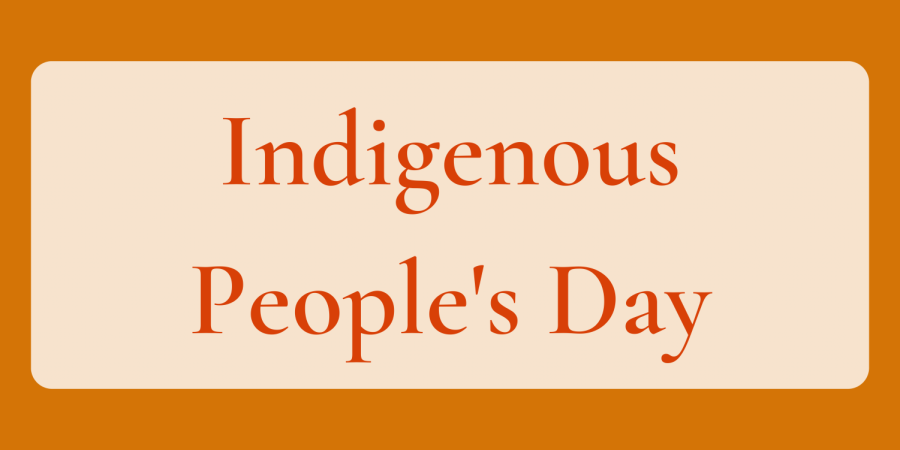Why we celebrate Indigenous People’s Day
On October 10th, 2022, Americans celebrated Indigenous People’s Day and Columbus Day
October 21, 2022
Every year, on the second Monday of October, America celebrates Columbus Day. This day honors Christopher Columbus and his accomplishment, but it also diminishes the hardship he brought to Indigenous people.
While remembering Columbus, many tend to overlook or forget about the harm he caused, specifically to the indigenous people of the land. In 1492, Columbus discovered the New World – The Caribbean – and found a society living there. Although accidentally, his voyage to the New World brought disease, which spread in this new society of not yet immune people, weakening the population. Because of this, the Indigenous people were more vulnerable to colonization, which eventually happened in the early 1500s. This colonization lasted until the early 19th century, well over 350 years.
Columbus also took advantage of the Native’s kindness and exploited them. He began to enslave them, forcing the people to work for him. He sent a few of the enslaved to Spain, seven women and three children, but it is unknown if they survived the trip. The second time he tried to send slaves, the King and Queen of Spain sent them back, outlawing the slave trade. However, in the New World, slavery was allowed and demonstrated. In their homeland, the now-enslaved Natives were forced to bring Columbus gold every three months, and if they failed to do it, their hands were cut off.
But brutality towards Indigenous people did not stop nor was it limited to the region Columbus found. Throughout history, in all of North America, hate crimes against Indigenous lives occurred. The most common of these injustices occurred primarily in Canada and was the forced assimilation to whiteness, which was shoved down their throats through residential schools.
Residential schools were where Native children were sent, after being stolen from their parents, to take away any connection to their culture. In these schools, they were forced to learn English and were forbidden to speak their own language. The environment of the schools was harsh, the children were punished often and suicide was common; Emotional, physical, and sexual violence was frequent. The last of the residential schools shut in 1998.
This is only one example of what Natives faced after colonization. The reason the switch from Columbus Day to Indigenous People’s Day is so important is that it shows awareness of how terribly Native Americans were treated and it provides non-Natives an opportunity to learn about Indigenous culture.
Although some argue that we can have both Columbus and Indigenous Peoples’ day, the idea is very contradictory. Celebrating Columbus essentially brushes off the brutality Natives had, and continue, to face.
Thirteen states, and several cities, have recognized Indigenous Peoples’ Day over Columbus Day. Venezuela has also done something similar, rather than celebrating “Dia de la Raza,” they celebrate “Dia de la Resistencia Indígena.”
Changing the name to Indigenous People’s Day is just the first, albeit small, step toward honoring Native Americans and celebrating their descendants. Despite America having a long way to go, this is a good place to start.



Christina Jakubas • Oct 27, 2022 at 6:52 pm
Thank you for sharing a necessary component of our re-education of this part of our history.